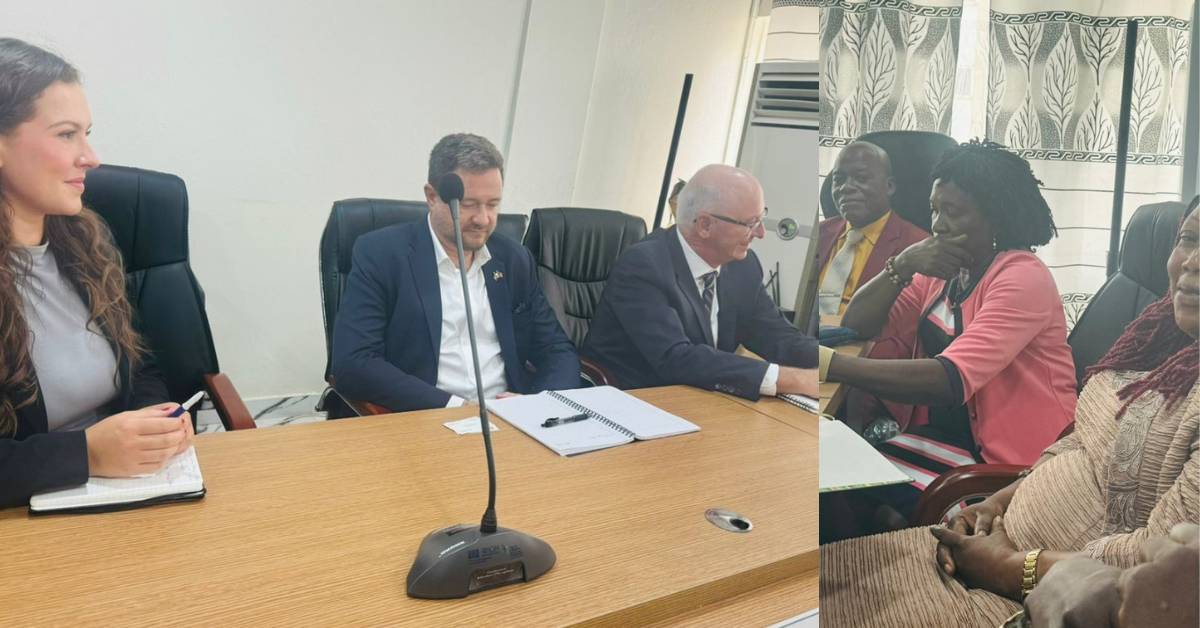A high-level delegation from the U.S. Department of State’s Bureau of International Narcotics and Law Enforcement Affairs met with officials from Sierra Leone’s Ministry of Internal Affairs to discuss pressing concerns over drug abuse and security in the country.
During the meeting, Sierra Leone’s Deputy Minister of Internal Affairs, Mr. Moriba S. Koroma, highlighted the severe impact of drug abuse, particularly the widespread use of “Kush,” on the nation’s youth. He acknowledged the government’s proactive measures to combat the issue but emphasized the need for international support to effectively eradicate the growing crisis. Koroma expressed deep appreciation for the U.S. delegation’s visit, calling for increased donor support to establish rehabilitation centers and bolster the government’s efforts.
Permanent Secretary of the Ministry of Internal Affairs, Mr. Alfred Lahai, echoed these concerns, describing the Kush pandemic as devastating to the future of Sierra Leone’s younger generations. He reiterated the government’s pivotal role in addressing the issue but underscored the necessity of international partnerships to strengthen their initiatives.
Mrs. Elizabeth Turay, Director of Police Affairs in the Ministry, further detailed the challenges faced in the fight against drug abuse and maintaining security. She called for additional donor support to reinforce government actions, while affirming the ministry’s commitment to preserving peace and stability in the country.
Leading the U.S. delegation, Mr. William J. McGlynn, Senior Advisor of the Bureau of International Narcotics and Law Enforcement Affairs, recognized drug abuse and security as critical issues that demand urgent attention. He praised Sierra Leone’s efforts and pledged U.S. support in providing specialized training and resources to combat the drug abuse crisis and enhance security measures in the country.
The discussions underscored the shared commitment between the U.S. and Sierra Leone to address the growing threats posed by drug abuse and ensure the safety and security of the population.











